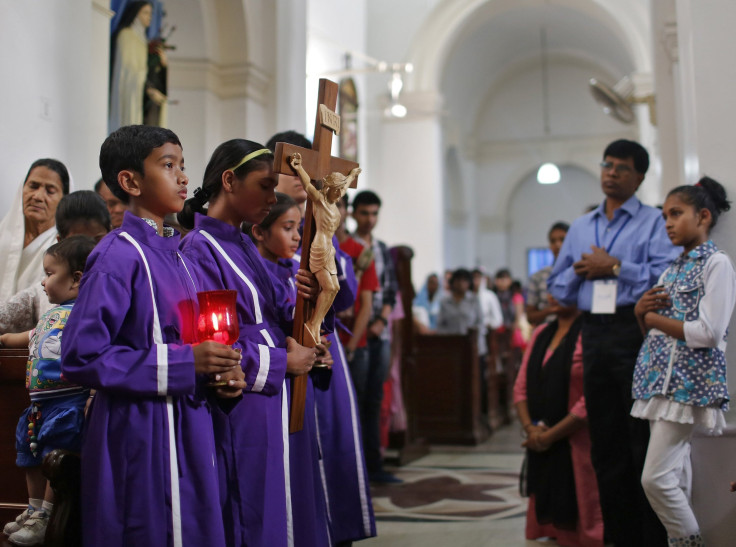Christian School Vandalized In New Delhi, Days After Attack On Church

Just over a week after a church was vandalized in India’s capital New Delhi, a Christian missionary school was reportedly vandalized in the city on Friday. Media reports said that the incident occurred at the Holy Child Auxilium School in the southern part of the city and the school has been shut down following the incident.
This is the sixth such incident since November when a Christian institution has been targeted in the city. On Feb. 2, St. Alphonsa’s Church in the Vasant Kunj area of south Delhi was broken into and several items were thrown about in its premises. Two similar incidents were reported in January, while one was reported in December.
Arvind Kejriwal, Delhi's chief minister designate, condemned the attacks. "These kind of acts will not be tolerated," he wrote in a tweet. Kejriwal is set to be sworn in as Delhi's new chief minister on Saturday.
India is home to about 24 million Christians, who make up about 2.3 percent of the country’s population, forming the third largest religious group after Hindus and Muslims. According to India’s 2001 census, the latest available data, just under 1 percent of Delhi’s residents are Christians.
Last month, U.S. President Barack Obama, who was on a three-day visit to India, said that the country could only succeed if it isn’t “splintered” along religious lines. Obama was possibly alluding to the issue of religious conversions that had gained prominence in India since the right-wing Bharatiya Janata Party (BJP) came to power in May last year, under the prime ministership of Narendra Modi.
"Our freedom of religion is written into our founding documents, it's part of America’s very First Amendment. Your Article 25 says that all people are equally entitled to freedom of conscience, and the right freely to profess, practice and propagate religion," Obama had said. "In all countries, upholding this fundamental freedom is the responsibility of government, but it's also the responsibility of every person."
A few days later, Obama said that “acts of intolerance,” in India “would have shocked Gandhiji, the person who helped to liberate that nation.”
“Michelle and I returned from India -- an incredible, beautiful country, full of magnificent diversity -- but a place where, in past years, religious faiths of all types have, on occasion, been targeted by other peoples of faith, simply due to their heritage and their beliefs -- acts of intolerance that would have shocked Gandhiji, the person who helped to liberate that nation,” he had said.
With the resurgence of the BJP, religion has yet again assumed significance in the country’s national political discourse. Some BJP-affiliated, right-wing organizations and some BJP members of parliament had threatened to convert thousands of Muslims and Christians to Hinduism, and also took such a step in early December. Following race riots in Modi's home state of Gujarat in 2002, he was denied a visa by the U.S., but relations between him and the U.S. have undergone a marked change since India's apex court absolved him of involvement in the riots, and he became the country's prime minister, achieving a landslide victory in last year's general election.
Although India has a majority Hindu population, its constitution defines it as a secular nation that guarantees equal rights and freedoms to people of all religions.
© Copyright IBTimes 2025. All rights reserved.





















